Elizabeth Spann Craig's Blog, page 184
February 4, 2012
Twitterific
by Elizabeth S. Craig, @elizabethscraig
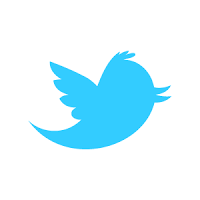 Below are the writing-related links I tweeted last week.
Below are the writing-related links I tweeted last week.
The free Writer's Knowledge Base search engine, designed by software engineer and writer Mike Fleming, makes all these links (now over 12,000) searchable. The WKB recently celebrated its one-year anniversary.
 Sign up for the free monthly WKB newsletter for the web's best links and interviews:http://bit.ly/gx7hg1 .
Sign up for the free monthly WKB newsletter for the web's best links and interviews:http://bit.ly/gx7hg1 .
Hope everyone has a great week!
Pros and Cons of First and Third Person Point of View: http://bit.ly/zyJ95T
Set the Scene: Scan: http://bit.ly/zJVsn9
Don't Let Multiple-Character Scenes Run Away With You: http://bit.ly/xJCiVs @KMWeiland
Don't tell us she's special. Show us: http://bit.ly/xHDbzx @dirtywhitecandy
Advantages of Writing a Fast First Draft: http://bit.ly/Afr9ax @LyndaRYoung
Tips for looking good for your webcam: http://bit.ly/zJfxvB @rachellegardner
The Perks of Being an Introverted Writer: http://bit.ly/AALyNP @JLeaLopez
Screenwriting vs. Novel Writing: http://bit.ly/ACr5O4
Do You Need Multiple Agents If You Write in Different Genres? http://writerunboxed.com/2012/01/23/untitled/ @ChuckSambuchino
The ABCs of social media: http://bit.ly/AkJnAX @Dana_Kaye for @junglereds
Writing: What Are We Good At? What Can We Improve? http://bit.ly/AcQMzn
What the eDickens? http://bit.ly/wHS33i @thefuturebook
How to get testimonials for your self-pubbed book: http://bit.ly/yLixf7 @JFBookman
How to bring emotion to your plot: http://bit.ly/yQHkXe @LauraPauling
When Do You Need to Secure Permissions? http://bit.ly/wbK6n9 @JaneFriedman
9 free ways to market your book: http://bit.ly/z6hl9e @BryanThomasS
5: Ingredients of Poor Writing: http://bit.ly/xOO9Cl @nicolamorgan
10 Bestselling Books with More Than 80 One-Star Reviews: http://bit.ly/zagJJS @galleycat
The one page synopsis: http://bit.ly/A9Tkb9
5 Tips for Writing an Effective Plot Twist: http://bit.ly/w1JKMp @cometdocs for @writeitsideways
Creativity Tweets of the Week – 01/27/12: http://bit.ly/Azg1Zh @PatrickRwrites
How 1 writer decides who to follow on Twitter: http://ow.ly/8KcCP @AlexisGrant
Best-sellers lists: How they work: http://bit.ly/Asdrbh
Web options for writers: http://bit.ly/yz5Kv7 @sierragodfrey for @roniloren
Tips for Writing Descriptive Passages: http://bit.ly/yifBhU @jamesagard
Writing Secrets of Prolific Authors: http://bit.ly/yDrVF6 @davidmasters
26 Tips for Writing Great Blog Posts: http://bit.ly/xF2INH @smexaminer
The State of Books in America: http://bit.ly/xwfzgP
The Promise of the Novel: http://bit.ly/wLfYas @Kid_Lit
Thoughts on writing an ongoing series: http://bit.ly/ys3O5e
Responses to rejections: http://bit.ly/Ae21Zp @bookendsjessica
Tips for promoting a pen name: http://bit.ly/yuCkOK
Creating an overall atmosphere of suspicion in a crime fiction novel: http://bit.ly/yEkXRP @mkinberg
Crime fiction in which the innocent confess to the crime: http://bit.ly/wR83FW @mkinberg
Tips for writing a historical novel: http://bit.ly/yALFXC @KristenLambTX
Formulaic Writing: When Craft Books Hinder: http://bit.ly/yWz35j @KatieGanshert
Omniscient POV: Think Like a Writer: http://bit.ly/xTSHf7
Author Branding — You Are Forced To Choose Who You Are: http://bit.ly/zsuWiF @storyfix
5 things about beginnings: http://bit.ly/A6OTtz @donnacooner
30 tips to improve your blog : http://bit.ly/xCFLlC
3 important questions about digital that nobody is asking: http://bit.ly/wp661w
Me, Myself and I – Picking the Right Word: http://bit.ly/z1m3dl @HowToWriteShop
Discovering the Front Story of Your Non-Point of View Characters: http://bit.ly/A0WwAV @janice_hardy
A grandma's advice on writing: http://bit.ly/wOfc8e @VictoriaMixon
How to Raise your Freelance Rates: http://bit.ly/zn843T @JulieBMack
Making our blogs interesting to both writers and readers: http://bit.ly/zTdgBw @MariaZannini
10 Ways to Tell if Your Story Should be a Memoir or a Novel: http://bit.ly/AlfruC
What Makes Ideas Unique? http://bit.ly/wmibAs @DIYmia
General rules of thumb for using exposition: http://bit.ly/w6GsSs @theresa_stevens
2 Qualities Your Protagonist Must Possess: http://bit.ly/wbJnjd
Resources for writers: http://bit.ly/wm8cBX @theskypirate
Tips for writing headlines and hooks: http://bit.ly/zbWj3V @speechwriterguy
How getting acquainted with your protagonist helps with plotting: http://bit.ly/yax9T5
12 People You Should Be Following on Twitter: http://bit.ly/AFm3wJ @AJackWriting
15 Big Little Words: http://bit.ly/xvmfLB @writing_tips
What do you love about your story? http://bit.ly/xK5pZb @mooderino
When Indie Publishing is a Viable Option: http://bit.ly/xYFTB5 @jorobertson29
Submitting your book to review sites: http://bit.ly/xvj8mB @PublicityPixie
Recycling blog topics? 10 ways to keep them fresh: http://bit.ly/AbrYBG @cherylrwrites
Why E-books Are Turning the Library and Publishing Worlds Upside Down: http://bit.ly/AstiYU @scholarlykitchn
On Quirky Character Names: http://bit.ly/yycNND @carleenbrice
If Neither Social Nor Traditional Media Sell Books, What Does? http://bit.ly/yrmkSk @talliroland
Writing fantasy genre stereotypes--alphas, betas, & losers: http://bit.ly/x59JDv @FaithBoughan
Placing Too Much Importance on Passion: http://bit.ly/wOY01y @janefriedman
4 fiction techniques to enliven your blog posts: http://bit.ly/zxw8l3 @problogger
How To Find Original Ideas When You Have None: http://bit.ly/yZDN11 @jodyhedlund
Using Triberr to save time with social media: http://bit.ly/yl85gA @jhansenwrites
The perks of writing groups: http://bit.ly/xTuG4N @queenbeetf
Write Yourself a Bad Review: http://bit.ly/zW268a @KMWeiland for @PatrickRwrites
What polite writers don't talk about: http://bit.ly/z4qWWh @sarahahoyt
1st Person POV: Think Like a Writer: http://bit.ly/xj2uFW
Training creativity: http://bit.ly/zgO36z @AllanDouglasDgn
An Overlooked Secret to Getting Published in a Magazine: http://bit.ly/AhTX9x @jeffgoins
74% Of Book Buyers Have Never Bought An eBook: http://bit.ly/AAgNZS @ebooknewser
The book world discovers the 99-cent special: http://bit.ly/xqJyz0 @passivevoiceblg
44 Hashtags for Writers: http://bit.ly/wLydIy @AuthorMedia
On narrative summary instead of dialogue: http://bit.ly/wM4js3 @theresastevens
Formatting guidelines for your manuscript: http://bit.ly/w2N2X8 @BrianKlems
Alternative desk ideas: http://bit.ly/x2GhW1 @yahighway
Writing Exercises to Recharge Your Creativity: http://bit.ly/xTh8GH @4kidlit
Goodreads won't continue using book info from Amazon: http://bit.ly/xZQk2B @PassivevoiceBlg
77% Of Romance eBooks Being Purchased On Laptop: http://bit.ly/wireNT @ebooknewser
Through the Trapdoor -- JK Rowling's Blueprint for the Harry Potter Series: http://bit.ly/x6mThq @HP4Writers
Preparing for a conference--choosing workshops & staying organized: http://bit.ly/ze4bm8
5 basic plot goals: http://bit.ly/wmGuuX @LiveWriteThrive
Why reader perception is important: http://bit.ly/xMnC0B @noveleditor
10 Hand to Hand Combat Myths That Writers Need To Stop Using: http://bit.ly/xgclqZ @ajackwriting
When You Are A Beginning Writer, The Keyword is Focus: http://bit.ly/yMOTtj
Should I go with an indie ebook pub? An agent answers: http://bit.ly/A1pGQW @rachellegardner
The many stages of editing: http://bit.ly/w4eUML @WriterDeanna
3rd Person POV: Think Like a Writer: http://bit.ly/z8N1WW
Are You Asking - & Answering -the Right Story Questions? http://bit.ly/xyOGkC @janice_hardy
Confusing things about writers: http://bit.ly/wUez7X @deanwesleysmith
Music as inspiration--an undercover soundtrack: http://bit.ly/y6GWCO @mkinberg for @byrozmorris
Cults as story inspiration-- http://bit.ly/xpqw37 @GeneLempp
Tips for Writing a Traditional Murder Mystery: http://bit.ly/AjJrQZ @NicoleBasaraba
Catching Your World on Paper: http://bit.ly/zKl6hD @QueryTracker
Art in writing: http://bit.ly/wH5o3R @Ravenrequiem13
Authors' Checklist of Dos and Don'ts: http://bit.ly/xvtOyw
Perfectionism and Procrastination Busting Tips: http://bit.ly/zNkvIB
The Problem With (Writing About) Immortality: http://bit.ly/zKaqdj @Kid_Lit
What makes a great book beginning: http://bit.ly/w0baiv @TaliaVance
Writing a better flashback: http://bit.ly/zllCEz @AmyJRoseDavis
How to End or Relaunch Your Blog Without Upsetting Your Readers: http://bit.ly/ypYdRd @pushingsocial
The magic & the mundane of in Paris: http://bit.ly/wn3gAQ @originalimpulse
The problem with free: http://bit.ly/xaPIJH @KristenLambTX
4 Techniques for Creating Believable Villains: http://bit.ly/zAvDiz @writersdigest @jamesscottbell
Protecting Your Ideas: http://bit.ly/xqBTOa @DiyMfa
On killing characters: http://bit.ly/A8jYwv @SarahAHoyt
Worldbuilding checklist for alternate social and cultural norms: http://bit.ly/xZMcRf @juliettewade
The Dangers of Switching Genres http://bit.ly/weOtGA @JanetBoyer
Tips for skipping over long periods of time in your story: http://bit.ly/xBfUgr @theresastevens
3 decisions to make about POV: http://bit.ly/w8vN2h @CAMorganti
Why Amanda Hocking Switched: http://bit.ly/yNSE8B @thefuturebook
Self-Editing: Back to Basics: http://bit.ly/z9DGM6 @authorandeditor for @DavidGaughran
Focusing On Detail Is Good, But Remember The Big Picture: http://bit.ly/ysne6u @greyhausagency
How to Choose Between a Big Word and a Small Word: http://bit.ly/wirttp @KMWeiland
No excuses writing: http://bit.ly/xB7bab @jeffgoins
7 Erroneous Reasons Writers Avoid Using Editors: http://bit.ly/w7gb0O @mesummerbooks
Writing on the Ether's @Porter_Anderson features @KristenLambTX @jamesscottbell @amyedel @gluejar @DavidKazzie @jwikert http://bit.ly/zOB88d
Redefining self-pub success, epub bubble, B&N v. Amazon, tips for trad. publishers, ind. news & views: http://bit.ly/zOB88d @porter_anderson
What Chekhov Knew about Sitcoms: http://bit.ly/znhwUg
The Importance Of Distance: http://bit.ly/A0u65A @BryanThomasS
The Empowerment Of Indie Publishing: http://bit.ly/yTOA3i @DavidGaughran for @thecreativepenn
Assure/Ensure/Insure: http://bit.ly/y82Q5I @mesummerbooks
Planning and Researching your novel: http://bit.ly/xSvcaw
Step-by-Step Guide to Making a Book Trailer: http://bit.ly/yL2o8u @JulieCantrell
Should Christian fiction be labeled? http://bit.ly/xfsIc3 @rachellegardner
10 helpful writing articles: http://bit.ly/xJ7Qyu
Tips for preparing a pitch: http://bit.ly/xpGuvF @Beth_Barany
The 5 Emotional Stages of a Book Launch: http://bit.ly/xzTQc0 @roniloren
4 Ways to Bring Your Writing Goals Closer: http://bit.ly/xtxtVw @aliventures
Why Literary Agents Like Amazon Publishing: http://bit.ly/xpKInA @galleycat
The Saga of a Fake Literary Competition: http://bit.ly/wup6Fb @VictoriaStrauss
10 Ways Multi-blog Authors Can Stay Creative and Generate Great Posts: http://bit.ly/yZrPo1 @problogger
"Frenemies" in crime fiction: http://bit.ly/ACr5uL @mkinberg
Build characters with action and motivation: http://bit.ly/wlzyAD @beth_barany
Is All the Hard Work Ever Going to Pay Off? http://bit.ly/zK0IQd @jodyhedlund
The Punk Genres of Fantasy: http://bit.ly/yTR804 @MarshaAMoore
Embracing the (Whole) Writing Process: http://bit.ly/A6Dm8X @writeitsideways
We now have more books published in a week than in all of 1950: http://bit.ly/AstIW4 @ebooknewser
Different Perspectives for Different Audiences: http://bit.ly/xdb7Wt
The Glee Guide to Attracting a Raving Horde of Social Media Fans: http://bit.ly/wa5bDw @bethjhayden
A Bookish Look at the Best Picture Nominees: http://bit.ly/Aalmqw @NewDorkReview
Should you hire a writing coach? http://bit.ly/wyIGNr @cherylrwrites
Is Your Writing Career Missing the Element of Sacrifice? http://bit.ly/yL2m77 @Sagoyizm
How to Use Layers to Enhance Your Plot: http://bit.ly/xCyA0Z @cslakin for @write_practice
An agent advises that clients not oversubmit their work to their agent for crits: http://bit.ly/woCab1 @bookendsjessica
February 2, 2012
The "Mystery" of Success by C. S. Lakin
by C.S. Lakin, @cslakin
 As mystery writers, we excel in piecing puzzles together and gathering pertinent clues to bring a reader to that "aha" moment of realization. But in the midst of our delight in creating mysteries, we often struggle with the most difficult mystery of all—the one that spells success in our lives. I'm not talking about actual success as per the "world's" standard; I'm referring to that inner joyful feeling that translates as a feeling of significance in out writing journey—regardless if we don't even sell one novel.
As mystery writers, we excel in piecing puzzles together and gathering pertinent clues to bring a reader to that "aha" moment of realization. But in the midst of our delight in creating mysteries, we often struggle with the most difficult mystery of all—the one that spells success in our lives. I'm not talking about actual success as per the "world's" standard; I'm referring to that inner joyful feeling that translates as a feeling of significance in out writing journey—regardless if we don't even sell one novel.
There's a moment for many writers when a tectonic shift occurs in their writing process, one that may not even be all that noticeable on the surface, but sends out powerful waves across the landscape of their writing life. I've seen this happen with dozens of my editing clients as they near either the completion of writing their book or upon finalizing a rewrite and seeing "the end" near in sight for that particular project. This shift manifests in various ways, but the early signs start with questions about "what to do, now that I'm done."
An Incursion of Unwanted Emotion
Most writers write in the hopes that they will sell their book, connect with a readership, and make money from the sales. Their priorities may not be in that order, but it's usually the goal when writing a novel that it get "out in the world" of readers. And that's expected and reasonable. So, here's what tends to happen—especially with an author completing her first book. The engulfing joy of writing and expressing creativity and voicing ideas now becomes infiltrated with a subtle, growing anxiety. Soon to join that is a cocktail mix of emotions: trepidation, fear, self-doubt, worry, despair, frustration. Whether these come flooding into the writer's mind and heart full force or just niggle at the back of her mind—they come.
Now that the intensity of the writing journey is over for the moment and the writer has breathing room, and can step back and look at her accomplishments, often any feelings of significance, achievement, or success are squelched before they can nurture the artist in the way they should. We should be able to step back when done creating a work of art—be it a novel, a song, or a painting—and spend some time in that special place of accomplishment. But this rarely occurs for the writer.
Feel the Earth Move under Your Feet
How much of this is self-imposed and how much is society-imposed is not something I can answer. However, I do believe we as artists need to be aware of this shift and understand that we can actively change how we respond. Why should we? Because if we think back to why we create in the first place, we will usually agree that we do so because of the fulfilling and satisfying experience expressing creativity gives us. There is no deeper joy to an artist than to create, to immerse herself in the creative experience, and then to step back and look at what has been created. That stepping back moment is a precious one, and unfortunately it often gets trampled on by the anxiety of "what comes next."
I believe if we pay attention to this shift and "feel the earth moving" underneath us, drawing us away from the joy of writing and into the morass of anxiety over whether or not our book will be published, we can steady ourselves and roll with the earth (I live near San Francisco, so the earthquake motif is a natural one for me to default to—pun intended).
Beating Themselves Up over Perceived Failure
Think about this: Some people aspire to reach the top of Mt. Everest. They may spend years of their life training, saving money, and obsessing over this goal to stand at the top of the world. I've watched (a bit obsessed myself) from the comfort of my couch these intrepid folks risking their lives to reach this pinnacle. Much of their success will depend upon their skill and training. But there's no accounting for a freak storm that might come along and take them down. Just read Jon Krakauer's book Into Thin Air if you want to see how bad luck can cancel out all the odds in your favor of succeeding. I am intrigued by these climbers who, upon having to quit for one serious reason or another just short of reaching their coveted goal, fall into deep depression, and their evident sense of total failure and worthlessness is plain for all to see. How can these people put so much of their heart and joy into the need to get to the top? Can't they be satisfied with having made it to 27,000 feet instead of 29,000? They have still climbed higher than almost all the humans who have ever lived on earth—isn't that good enough? But it's not. They torture themselves over their failure, which to them is absolute and unforgivable.
Many writers do the equivalent in regard to their writing. If they don't sell millions, make some best-seller list, become a household name like Stephen King, they are miserable. In fact, it's worse than that. For some, if they can't get a book contract, or earn more than their advance, they feel the same way. What used to be a joyous experience (writing) has now become a burden and a source of great pain. I see it all around me—even in writers I would define as quite successful by the world's standards. But, to them, that success is just not good enough, and they feel that "failure" means they are a failure. In effect, they have lost their way through the bucolic land of creativity and are wandering in despair in the gloomy marshes of self-doubt and the need for success.
Step Back and Admire the View
I would be lying if I said I haven't wandered off the path into said marsh more than once. I think all artists do from time to time. However, if this process of surfacing from the joy of being creative into the marsh of despair and anxiety over a lack of "success" is repeated many times over, year after year, it can destroy our spirit. There are numbers of climbers who never quite made it to the top of Everest. Years later they still feel like failures in life. You'd think with the kind of panoramic perspective they're used to having at the top of a mountain they could don a healthy perspective about their life and their significance. For that's what it's really all about—learning how to find significance in the journey of creativity without it being dependent on the tangible societal measures of success.
My advice, then, as a writer who's been on this journey to publication and success for twenty-five years, is to step back and get a perspective on how obsessed you might be with "success" and instead find significance in what you create. Remind yourself that the joy of the process is valid and vindicating in its own right. The more you can shift your perspective, the less the ground will shift under you. From this lofty height you will see how the mysterious clues of your writing life piece together and create a worthy and satisfying picture.
C. S. Lakin is the author of twelve novels, including the seven-book fantasy series "The Gates of Heaven." She also writes contemporary psychological mysteries, including her Zondervan contest winner Someone to Blame. She works as a professional copyeditor and writing coach and loves to teach the craft of writing. Her websites are dedicated to critiquing fiction and building community to help survive and thrive in your writing life: www.LiveWriteThrive.com and www.CritiqueMyManuscript.com . Come join in! You can read more about her and her books at www.cslakin.com .
Follow @cslakin and @livewritethrive. Facebook: C. S. Lakin, Author, Editor .
January 31, 2012
Tips for Writing a Traditional Murder Mystery
by Elizabeth S. Craig, @elizabethscraig
 Hope you'll pop over and join me today at Nicole Basaraba's Uni-Verse-City blog. Nicole is running a blog series that focuses on the nuts and bolts of writing particular genres. I'll be giving some tips on writing traditional mysteries (and continuing my campaign to encourage every writer to consider writing a mystery!)
Hope you'll pop over and join me today at Nicole Basaraba's Uni-Verse-City blog. Nicole is running a blog series that focuses on the nuts and bolts of writing particular genres. I'll be giving some tips on writing traditional mysteries (and continuing my campaign to encourage every writer to consider writing a mystery!)
If mystery writing really isn't your thing (sigh), then you might want to check out the upcoming posts in Nicole's blog series—which include a look at horror, historical fiction, women's fiction, romance, crime fiction, memoir, and others. Check this post for dates and genres.
January 30, 2012
What to Do When Your Character Goes to Court—by Blythe Leszkay
You've thought about writing a courtroom scene or a legal thriller. But maybe you don't know how courts really work or how to use legal jargon. You're not sure what evidence can or can't be used in court, or how it should all play out. So, you let a great story idea drop away out of ignorance and fear.
First, and most importantly, don't be scared! Non-lawyers are often afraid of tackling a legal storyline. But courtrooms are a natural setting for great drama. If your story idea takes your characters into court or jail or a lawyer's office, follow it. Don't let the complexity and mystery of the law scare you off from a potentially great courtroom scene or legal storyline.
Just as you might need to learn about police procedures or forensics to write about those topics, so too should you learn something about criminal law when your characters take that step.
Here are four simple ways to gain the background knowledge and confidence necessary to write a great legal storyline, or even a complete legal thriller.
1. Watch TV and Movies – Watching great legal drama on TV and in movies is a good place to start. I think Law & Order (the original) is on somewhere, sometime, every single day. A couple movies I would recommend for starters would be A Few Good Men and My Cousin Vinny. They are generally more accurate than a lot of others.
TV and movies like these can help you get a basic feel for legal procedures and terms. This can be a great way to see how criminal law is fictionalized in an authentic way.
However, I must give you an important word of caution: Pretty much every legal drama gets things wrong. Even the best TV shows, movies and books let accuracy take a backseat to drama. That's why these are a good place to start, but they shouldn't be your only source of legal knowledge.
2. Read the Paper – A somewhat more accurate place to get information about criminal law is in the news. Follow interesting real-life trials. Read true crime books. Watch true crime stories on TV. The Investigation Discovery channel (or ID) is a great source for those kinds of shows.
Again, however, be warned. These sources may leave a lot out of information for the sake of a good read or compelling TV. I know a prosecutor whose case was profiled on one of those shows. Before the show aired, critical DNA results came back, and the prosecutor updated the producer. Despite this, the show left the impression that the results were still unknown.
I guess the lesson is, don't believe everything you read in the papers or see on TV.
3. Go to Court – If you want to get a taste of how legal proceedings really happen, go to court and see for yourself. Criminal trials are public. Simply go to your local courthouse and watch a real criminal trial. You can ask security or the court clerk if they know of any interesting criminal trials in session.
This is certainly an accurate source of information, but it may be the most time-consuming and inefficient way to learn. Real trials tend to move slowly, and they are filled with objections, motions, and procedural matters that would never be included in a fictional story.
Nevertheless, I think everyone who thinks of writing a legal storyline should check out part of a real trial, at least once. I'll never forget the letdown I felt the first time I watched a real trial. No yelling lawyers, no "gotcha" moments, no confessions from the witness stand, and no pounding gavels. Even though we know that's reality, it can be eye-opening to see it in person.
4. Talk to a Criminal Lawyer – A real-life criminal attorney is going to be your best source of information by far. They can give you a general understanding of the area of law you're interested in. They can give you background information and tell you as much, or as little, detail as you want. They can focus on the law and procedures that would apply to your story or character.
Do you want to know the procedures of how certain evidence would be presented? Or would it even be allowed? Do you want to know the difference between murder and manslaughter? Do you want to know whether the crime your character committed would qualify him or her for the death penalty? If it did, would a prosecutor realistically seek the death penalty in such a case?
An attorney can help you understand, and correctly use, legal terms. They can help you brainstorm ideas or read your draft for accuracy. They can answer your specific questions.
The difficulty here is if you don't know a criminal lawyer personally, it can be hard to find someone willing to take the time to talk to you about your project (without charging you a fortune). It can also be hard to find someone who can explain things in a way that's easy for non-lawyers to understand.
That's why I decided to offer legal consulting services to writers and filmmakers. After we have worked together, writers have the confidence and knowledge that their work is authentic and credible. That confidence can go a long way when it comes time to sell a project.
The bottom line is, if you're thinking of tackling a legal storyline, go for it. Like any other topic, it may take some research and effort, but it will be worth it. Even if you're not quite ready to take that plunge, I've created a few resources that I hope will be helpful for anyone interested in one day taking their characters into the courtroom – check them out below.
Blythe Leszkay is an experienced and successful criminal attorney, criminal law professor, and consultant to writers and filmmakers. She handles legal technical matters, so clients are free to focus on their creative genius.
Get a free Writer's Guide: Top 7 Mistakes Made by Writers of Crime, Mystery and Legal Drama at www.criminallawconsulting.com/free-writers-guide.html .
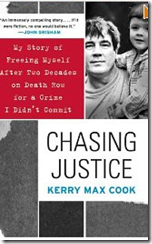 Enter for a chance to win a signed, hardcover edition of "Chasing Justice: My Story of Freeing Myself After Two Decades on Death Row for a Crime I Didn't Commit," by Kerry Max Cook at
www.criminallawconsulting.com/giveaway.html
. The deadline to enter is February 15, 2012. If you have a published book you would like considered for a future giveaway, contact Blythe at
criminallawconsulting@gmail.com
.
Enter for a chance to win a signed, hardcover edition of "Chasing Justice: My Story of Freeing Myself After Two Decades on Death Row for a Crime I Didn't Commit," by Kerry Max Cook at
www.criminallawconsulting.com/giveaway.html
. The deadline to enter is February 15, 2012. If you have a published book you would like considered for a future giveaway, contact Blythe at
criminallawconsulting@gmail.com
.
Blythe is developing a resource page for information on criminal law concepts, which you can peruse at www.criminallawconsulting.com/resources.html . She regularly posts about all things criminal on her blog at www.criminallawconsulting.com/blog.html .
January 29, 2012
Promoting a Pen Name
by Elizabeth S. Craig, @elizabethscraig
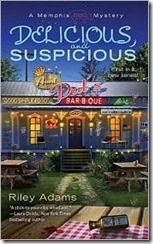 I wrote a post on January 10th about the benefits of being a novelist...one being that you can write whatever you want to write, under different names. It's a fantastic way to get the opportunity to experiment with other genres or styles while not disappointing readers who might be accustomed to particular types of books.
I wrote a post on January 10th about the benefits of being a novelist...one being that you can write whatever you want to write, under different names. It's a fantastic way to get the opportunity to experiment with other genres or styles while not disappointing readers who might be accustomed to particular types of books.
The downside is actually promoting those different names.
This post is for those of you who write under two names—but want to link your pen name to your real name (in case you have readers who want to take the leap to another genre or series with you.)
There are some things that I've done that seem to work well for linking two names:
Having both names as my Blogger profile (I comment on my own blog and others' blogs as Elizabeth Spann Craig/Riley Adams)
Email signature: My email signature includes the two names that I write under.
Facebook: I make sure that both names are on my Facebook page.
Website: The fact that I write under two names is prominent on the home page.
Amazon Central author page: This is probably one of the most important places to include both names.
More painful, time-wise, for pen name promo:
Having a separate Facebook page for the pen name. Which I do have. It doesn't get updated often, but readers sometimes contact me there.
A separate Twitter profile for the pen name: It didn't take long to give this idea up.
Separate Goodreads account: I'm bad to keep up with Goodreads, even with my real name.
Something to try for promoting your pen name:
Be on a rotation for a group blog—as your pen name. This is something I did for several years (as a once-a-week blogger on a food blog for my culinary mystery), although lately I've run out of time even for that. But, if you can spare the time, being a regular on a group blog that focuses on the genre you're writing can be a way to reach new readers.
Do you use a pen name or have you thought about using one? How have you promoted it?
January 28, 2012
Twitterific
by Elizabeth S. Craig, @elizabethscraig
Below are the writing-related links I tweeted last week.
The Writer's Knowledge Base search engine, designed by software engineer and writer Mike Fleming, makes all these links (now over 12,000) searchable.
 Sign up for the free monthly WKB newsletter for the web's best links and interviews:http://bit.ly/gx7hg1 .
Sign up for the free monthly WKB newsletter for the web's best links and interviews:http://bit.ly/gx7hg1 .
Story structure: the 1st plot point: http://bit.ly/xIbywR @rebeccaberto
7 Lessons For Writers From Leonardo Da Vinci: http://bit.ly/AxytcE @thecreativepenn
20 things you need to know before you self-publish: http://bit.ly/wdwh3E @guardian
Round out your characters with contradictions: http://bit.ly/wylldQ @dirtywhitecandy
Make an Image become a Symbol: http://bit.ly/ysA1qY
Will an agent ever recommend self-pub? http://bit.ly/AwlgbQ @rachellegardner
Tips for finding your writing voice: http://bit.ly/scghYa @rebeccaberto
Starting Off a Book in Unfamiliar Territory: http://bit.ly/wigsI2 @janice_hardy
Tell a story only you can tell: http://bit.ly/wmTONh @bookemdonna
3 tests for the opening scene of a romance: http://bit.ly/ygeayA @teresamedeiros
Balancing reason with our love for writing: http://bit.ly/xDfCGT @WomenWriters
7 Negative Prefixes: http://bit.ly/zpuNU5 @writing_tips
How 1 writer learned to write: http://bit.ly/A2bfR9 @KMWeiland
12 Twitter Tips for Writers: http://bit.ly/y1uoOa @ajackwriting
When Book Publicists Go Too Far: http://bit.ly/xdpfly @pubperspectives
Author Blogging 101: Video Interview Tools & Tips: http://bit.ly/wx5fyI @JFBookman
The Value of Ambition: http://bit.ly/AzhMai
Getting back in the writing groove: http://bit.ly/yZUG40 @pepperbasham
Motivation and characterization: http://bit.ly/Aro0un @Dragonmuse
How to Keep Up Your Writing When You're Sick: http://bit.ly/Awvmnb @writeitsideways
Why Isn't Literary Fiction Getting More Attention? http://bit.ly/zDbMip @AprilLineWriter for @Janefriedman
Basic manuscript formatting: http://bit.ly/A7tIqy @behlerpublish
89 Book Marketing Ideas: http://bit.ly/wQShjI @Caitlin Muir
Word Count For Writers: To Count or Not to Count: http://bit.ly/AkG0tV @epubworld for @thecreativepenn
As demand for e-books soars, libraries struggle to stock their virtual shelves: http://bit.ly/wsnN6X @passivevoiceblg
Don't present written proposals to agents at conferences: http://bit.ly/zvt79Q @bookendsjessica
Breakdown of the story structure of a middle grade mystery: http://bit.ly/wKa2La @laurapauling
Can Critique Groups Do More Harm than Good? http://bit.ly/xpwwCP @KristenLambTX
A show, don't tell example in dialogue: http://bit.ly/zZJBHs
The first thing you do when you sit down at the computer: http://bit.ly/wxDaCK
Yes, You Do Need a Theme: http://bit.ly/xGZXP3 @LiveWriteThrive
Tips for lending realism to the paranormal: http://bit.ly/wDYUJ8 @lisagailgreen
Writing means many types of beginnings for writers: http://bit.ly/zYYaG3 @eMergentPublish
The Joys of Rewriting: http://bit.ly/xp04yJ @mooderino
Why Use Past Tense? http://bit.ly/wL6TDZ @ava_jae
When to use modifiers: http://bit.ly/z01Gd6 @theresastevens
The difference between sequence and scene: http://bit.ly/wm8KXZ @AlexSokoloff
The Power of Creative Storytelling: http://bit.ly/AajgRL @maxdubinsky for @jeffgoins
Book Cover Design and the Problem of Symbolism: http://bit.ly/yC5GCs @JFFriedman
Getting Through the Editing Process: http://bit.ly/xatvmi @Sarafurlong
Determining if your book is a "hot" property for agents & publishers: http://bit.ly/wyYcgE @rachellegardner
5 Confused Word Pairs: http://bit.ly/AnMvxA @writing_tips
The new author pitch: Show, don't sell: http://bit.ly/zO2Qen
Getting the most from your book's sell sheets: http://bit.ly/yVF5lX @BryanThomasS
Tips for introducing characters: http://bit.ly/z4FgE8 @Janice_Hardy
3 Ways to Use Pinterest for Book Publicity: http://bit.ly/zhnw1o @booksparkspr
1 Important Way for Authors to Get Discovered by Readers: http://bit.ly/xbRu5A @JodyHedlund
10 Tips for a Successful Author Talk: http://bit.ly/A3OB3g @janice_hardy
Getting started with Triberr: http://bit.ly/zfGt7H @JHansenWrites
What Sort of Goals Do You Need? 10 Questions to Ask: http://bit.ly/ybLu8z @CherylRWrites
The Rhythms of Work vs The Rhythms of Creative Labor: http://bit.ly/wNpacN @jkglei
Trying to make your fantasy unique? Try making a twist: http://bit.ly/zQZ1dl @JulietteWade
Themes and Story Premise in Novel Writing: http://bit.ly/wfBh1A
The Role of Google+ in Marketing: Get Googled: http://bit.ly/xeBGoh @candacemountain
The road to epub--Smashwords, KDP, PubIt: http://bit.ly/AbbEZA
Starting out our day with outgoing instead of incoming: http://bit.ly/wBm0gA
Self-Pubbed Author Beware: http://bit.ly/zpqJXW @jakonrath
Tips for writing tension--complex protagonists & escalating conflict: http://bit.ly/y1fksG @JodieRennerEd
Writing Nonfiction: Using Quotations: http://bit.ly/Akb6Gz @KarenCV
Forcing yourself to write a "big idea" instead of the scale that suits your story: http://bit.ly/yUl2UH @sarahahoyt
10 ways to boost your freelance writing income in 2012: http://bit.ly/zKEbRy @michellerafter
Fuel Your Critique Group With Google+: http://bit.ly/AbQrb7 @authormedia
Why Reader Taste Differs from Publisher Taste: http://bit.ly/z2f7ID @jennybent
Reader Reviews and What Not To Do: http://bit.ly/yKDk4g @WendySMarcus
How to prepare for a writers conference: http://bit.ly/zP3xxg @Bob_Mayer
Myers-Briggs: A Tool for Authors: http://bit.ly/AfsiId @FaeRowen
10 tips for writers to keep procrastination at bay: http://bit.ly/xe6Asl @TaliaVance
A report on a free ebook experiment: http://bit.ly/w37Jug @TheresaStevens
Tips for sifting through feedback: http://bit.ly/AvMrzx @WriteAngleBlog
Digital Rights Showdown: HarperCollins v. Open Road: http://bit.ly/Aru8cs @VictoriaStrauss
Correct use of apostrophes: http://bit.ly/xrUJCO @authorterryo
Bookish things for book lovers: http://bit.ly/Am1Uq4 @LitMusings
3 elements of a book title that sells: http://bit.ly/z7Caq7 @beth_barany
Creative Thinking Comes Before Creative Writing: http://bit.ly/x9XyM2 @bob_brooke
Do You Hold E-Rights to Your Traditionally Published Book? http://bit.ly/yLobG1 @PassiveVoiceBlg
Why Amazon's Plagiarism Problem Is More Than A Public Relations Issue: http://bit.ly/z0hoqS @jeffjohnroberts
Description in Fantasy: Finding the Sweet Spot: http://bit.ly/wj1XT6 @AmyJRoseDavis
Poking Dead Scenes With A Stick: http://bit.ly/xjxdnP @Janice_Hardy
How deep is your POV? http://bit.ly/AA0Bd4 @JoannaShupe
Reasons your book isn't selling: http://bit.ly/AaYrAa @DavidGaughran
10 ways to cut costs from your freelance business: http://bit.ly/ymCY1H @michellerafter
Harry Potter and the 3 Types of Heroes: http://bit.ly/wIvUCe @write_practice
Explaining "genre in the mainstream:" http://bit.ly/yLFFox @tordotcom
How to Write a Publishable Memoir: 12 Do's and Don'ts: http://bit.ly/zcL7wF @annerallen
A look at Harlequin contracts: http://bit.ly/w9m3hD @PassiveVoiceBlg
Why playing safe in publishing is riskier than ever: http://bit.ly/xge9zX @dirtywhitecandy
What is Copyright and What Does it Do? http://bit.ly/wxmcpK @DiyMFA
5 Ways Bad Reviews Can Help You: http://bit.ly/wRG0bh @AJackWriting
6 Signs of Description Misuse: http://bit.ly/xa4qnG @LyndaRYoung
2012 tax tips for US writers and publishers: http://bit.ly/x4zbGl @GLeeBurgett
How Unemployment Inspired an Interactive Book: http://bit.ly/wOdl0H @GalleyCat
The value of publicity: http://bit.ly/ACq2aW @JAKonrath
How to Clean Your Blog's Junk Drawer: http://bit.ly/xTbMMl @pushingsocial
12 Evocative Words That Include "Ae": http://bit.ly/x647kl @writing_tips
Remember what really matters..and write: http://bit.ly/wChfbI @amysorrells
Fact-checking matters with fiction, too: http://bit.ly/ArvgoU @JodieRennerEd
Interesting roundup of Digital Book World, esp.the gulf btw. writers & the publishing industry: http://bit.ly/ysf9pP @Porter_Anderson
How to Make Your Book Play Out Like a Movie: http://bit.ly/zXDWFY @JodyHedlund
Book Sales Aren't Everything: http://bit.ly/xAsAkI @selfpubreview
Writing your book's final sequence: http://bit.ly/w3XSol @katepaulk
Found Object Stories: Think Like a Writer: http://bit.ly/zgPrQO
4 Writing Routines You Can Live With: http://bit.ly/yN6BMP @writeitsideways
Worldbuilding--Setting up alternate social parameters: http://bit.ly/ydguht @JulietteWade
Blog Topics: Original or Commonplace? http://bit.ly/xE2HRU @cherylrwrites
Han Solo, Scarlett O'Hara, and Your Characters: What Makes Them Compelling? http://bit.ly/ywO5e7 @KMWeiland for @write_practice
Why our voice and the rhythm of our writing is important: http://bit.ly/xcRnyr @janice_hardy
10 Questions for Publishing CEOs: http://bit.ly/xUdESG @DonLinn
Querying a publisher after you've fired your agent: http://bit.ly/Aw3YFd @bookendsjessica
Authors, Bloggers, and When the Internet Feels Like A Low-Budget Horror Movie: http://bit.ly/w9ThEW @BooksAreMyBFs
How to Remove the OCD from Your Blogging: http://bit.ly/yjbmeI @KrissyBrady for @catseyewriter
How to Add Goodreads to Your Facebook Timeline: http://bit.ly/yLK735 @GalleyCat
The importance of keeping in touch with our readers: http://bit.ly/w8lXne @GoblinWriter
The Skinny on Social Networking: http://bit.ly/xnwVL3 @writersdigest
Read. Write. Repeat: http://bit.ly/wBdFMh @SusanMayWriter
Line editing in action: http://bit.ly/z29PvS @theresastevens
What a teething toy taught 1 writer about branding: http://bit.ly/xi5PKe @Lit_Gal
The Uncertainty Principle: how do writers know if they're any good? http://bit.ly/wyHIDb
The myth of the bestseller: http://bit.ly/Abq5ay @JAKonrath
Publishers Less Optimistic About Digital Books This Year: http://bit.ly/yslZVW @GalleyCat
5 Tips For Social Media Promotion Success: http://bit.ly/y7KWWy @BryanThomasS
Writing for Life: 5 Practical Goals For Writers: http://bit.ly/xx5tRu @thecreativepenn
Coincidence Destroys the Suspension of Disbelief: http://bit.ly/yj6BHn @noveleditor
Coincidence Destroys the Suspension of Disbelief: http://bit.ly/yj6BHn @noveleditor
Lies that Can Poison Our Writing Career: http://bit.ly/zklggd @KristenLambTX
Adverbs: They're Really Not All Bad: http://bit.ly/vZieKi @janice_hardy
97 Ideas for Building a Valuable Platform: http://bit.ly/waUEuL @chrisbrogan
Writers: How to Avoid Stagnation: http://bit.ly/xPF3JX
Strip down your writing: http://bit.ly/AfpN0p
3 ways to alleviate self-doubt: http://bit.ly/zH8q8x @turndog_million for @JaneFriedman
3 ways to alleviate self-doubt: http://bit.ly/zH8q8x @turndog_million for @JaneFriedman
Is KDP Select Salvation or Damnation for Indie Authors? http://bit.ly/A89Dp6 @craftycmc
How Computer Games Can Help You With Your Plotting: http://bit.ly/xEgChK @janice_hardy
Agatha Christie on writing: http://bit.ly/zT2CzB @becke_martin
January 26, 2012
Writing to Done
by Elizabeth S. Craig, @elizabethscraig
 My husband, God bless him, is a perfectionist.
My husband, God bless him, is a perfectionist.
I had some pictures that I'd wanted to hang on one of our walls. They're nice botanical prints.
The problem was that there were six of them. It wasn't really a problem, except that it meant that my husband wanted to devote a lot of time into getting the pictures hung. You know—measuring the wire on the back of the prints, cutting out tissue paper replicas of the pictures to arrange on the wall, carefully marking up the wall with pencil, using a tape measure to create a grid on the wall…
This is not to say that this is the wrong way to hang pictures. No, it's the right way. Except that it requires a lot of time—and my husband has very little free time. And I don't have the patience to hang pictures that way.
My botanical prints sat neatly stacked on the floor for many months…until a few weeks ago when my husband left town for a trip.
While he was gone, I grabbed the hammer, eyeballed the pictures and the spot I wanted them in, and started putting nails in the wall. Ten minutes later, the prints were hung. I think they look pretty good.
Now…are there a bunch of holes in the wall under my pictures where I had to rehang crooked prints? Absolutely. There are also a few holes in the walls between the pictures. Can you tell, looking at the wall, that there are a bunch of little holes in it? Not unless you get really, really close. The overall effect is very nice.
The important thing is just to finish. We shouldn't let perfectionism keep us from ever finishing a book because we want to get the story or the diction or the voice perfect. If we finish our book, then we can fix any problems or mistakes.
I do know a lot of writers who like to edit as they go and work really well that way. I'd just add that if you do write that way and it's not going particularly well, consider taking the time to reevaluate your process and see if a different approach might work better for you.
How do you put perfectionism behind you during your first draft?
January 24, 2012
Outgoing vs. Incoming
by Elizabeth S. Craig, @elizabethscraig
First a special note—yesterday marked the first anniversary of the Writer's Knowledge Base search engine. The WKB is the free, searchable archive, developed by Mike Fleming, for all the writing-related links I share. Hope you'll try it for information on writing a novel, querying an agent or publisher, or promoting your book.
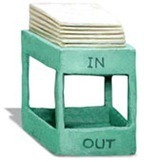 I think a lot about ways to be more productive. We all have only a certain number of hours in our day and a certain number of things we need to accomplish in those hours.
I think a lot about ways to be more productive. We all have only a certain number of hours in our day and a certain number of things we need to accomplish in those hours.
I have a really tight schedule up until summer and I've been grabbing my writing time when I can find it.
I'm an early riser. In the past, I've tried to go straight to my computer in the morning and get some writing done….first thing.
I knew I was supposed to do this. I knew it helped me get my writing goals met for the day. I knew it made me start off the day on the right foot—with a win.
But I didn't really think about the underlying reasons I was doing it. And because I didn't, it meant that I didn't ascribe the importance to the task that I should have.
Over the holidays, I got into a different sort of habit. I still got up before dawn, but I was checking my calendar, checking my emails, and checking online activity: had the blog I'd scheduled posted correctly? Did I have any messages in my Twitter DM folder that I should read?
Those are things that do need to be done. Do they need to be done at 4:45 a.m., though? No. I really don't even need to check my calendar before 5 a.m.—what could I possibly be needed for at that hour, anyway?
Seth Godin had an excellent post a couple of weeks ago. He asked what was the first thing we do at the computer each morning. He suggested it was "checking our incoming." But he reminded us that, if we're artists, that:
"the first thing you do should be to lay tracks to accomplish your goals, not to hear how others have reacted/responded….to what happened yesterday."
In other words, we should be focused on our outgoing, not our incoming. Start out our day creating something new.
After reading Godin's post, I decided to start writing first each day again. This time, instead of feeling like it was just a chore to knock off my long list, I felt like I had more of a sense of purpose to my writing. I was creating something, moving forward, not looking back at what I might have missed in the last eight hours since I'd last checked my emails or other messages.
And it felt good. In fact, I was more inspired and felt more purposeful.
Have you ever thought about changing your morning routine? Or considered writing before checking in with social media?
January 22, 2012
Lending Realism to the Paranormal—by Lisa Gail Green
by Lisa Gail Green, @LisaGailGreen
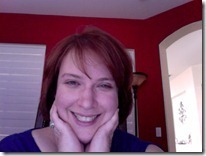 Lending realism to paranormal. It sounds like an oxymoron, doesn't it? But allowing your readers to suspend their disbelief is vital if you're writing in this genre or any other type of speculative fiction. Think of Harry Potter for a moment. What was it about an entire society of witches and wizards complete with schools, government and other fantastical creatures that allowed us to read on while hoping for an owl of our own?
Lending realism to paranormal. It sounds like an oxymoron, doesn't it? But allowing your readers to suspend their disbelief is vital if you're writing in this genre or any other type of speculative fiction. Think of Harry Potter for a moment. What was it about an entire society of witches and wizards complete with schools, government and other fantastical creatures that allowed us to read on while hoping for an owl of our own?
I've broken down five features I believe are imperative to creating "realistic" paranormal.
1. The details.
It's the small things that matter. If I buy into a world I want to be able to taste the food, feel the textures, hear the sounds – not just for the major things, but for the everyday bits as well. How does a werewolf shave? Does he laugh at the silliness of it?
2. The characters must be human.
I don't mean literally. Your MC can be an alien with three heads for all I know. What I mean is that inside, the thoughts and feelings should be familiar to the reader. We have to be able to connect on a visceral level. So as long as we have that internal connection, the character will be much easier to accept.
3. The world must be complete in the author's mind.
If you don't understand your world, neither will your reader. You have to know how everything works and fits together if you want to have a hope of conveying it to others. Don't gloss over parts you are having trouble with, make sure you have a reason and that it all fits together, otherwise fix it.
4. There must be no discrepancies.
If your vampire can't see himself in a mirror, you better have a very good reason why the girl see's him coming at the end through a reflection in the water. Make sure if there's a rule, you carry through to the end. If your MC saves the day because of some hidden power, please build up to that reveal, so it feels natural and not like something you came up with to get yourself out of a corner you've written yourself into!
5. The rules must be based on universal truths.
I'm going to assume the laws of gravity apply unless otherwise stated. And even if you don't reveal every last thing, you will find it helps to have a solid reason as to why things are the way they are. The logic will translate onto the page.
What do you think? Have I missed any key elements?
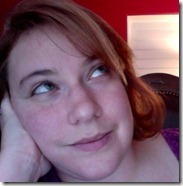 Lisa Gail Green writes paranormal and fantasy. Her newest publication is IDENTITY CRISIS in the anthology GODS OF JUSTICE.
Lisa Gail Green writes paranormal and fantasy. Her newest publication is IDENTITY CRISIS in the anthology GODS OF JUSTICE.
Lisa is an active participant on
EnchantedInkpot.com
as well as
ChildrensPublishing.blogspot.com
. You can find Lisa most often on her own blog at
paranormalpointofview.blogspot.com
or Twitter as @LisaGailGreen. She would most definitely have a werewolf for a pet if she weren't allergic.
January 21, 2012
Twitterific

by Elizabeth S. Craig, @elizabethscraig
Below are the writing-related links I tweeted last week.
The Writer's Knowledge Base search engine, designed by software engineer and writer Mike Fleming, makes all these links (now over 12,000) searchable.
 Sign up for the free monthly WKB newsletter for the web's best links and interviews:http://bit.ly/gx7hg1 .
Sign up for the free monthly WKB newsletter for the web's best links and interviews:http://bit.ly/gx7hg1 .
Different approaches to naming characters: http://bit.ly/A5vLkK @kirstenhubbard
How Barnes & Noble Can Take a Bite Out of Amazon: http://bit.ly/Am4STf @JosephJEsposito for @scholarlykitchn
How "Literary" and "Entrepreneur" Are Becoming Intertwined: http://bit.ly/zNU4E6 @biblioracle for @janefriedman
The symbiosis linking SF and mainstream: http://bit.ly/zhyS5w
A look at social media tool Triberr: http://bit.ly/wNnfhu @Jhansenwrites
A Singularly Unpopular View of Adverbs: http://bit.ly/wN4rLf @KeithCronin
Writing daily when you have a day job (written for bloggers, works for novelists): http://bit.ly/wUVh7f @PushingSocial
Your dialogue can do more: http://bit.ly/xcV9DS @JulietteWade
5 Ways to Draw Readers Into Your Articles: http://bit.ly/yFyHmg
Publishing house procedure for consideration of a manuscript: http://bit.ly/A5cPdH @bookendsjessica
Using Either, Neither, Or, and Nor Correctly: http://bit.ly/xMDu9d @write_practice
You can write daily: http://bit.ly/zyhBkZ @eMergentPublish
Dealing with deadlines: http://bit.ly/wUaDQm @rachellegardner
10 Tips on Guest Blogging and Blog Tours: http://bit.ly/wFacwh @pstoltey
Evaluating a new publisher? Give yourself the gift of time: http://bit.ly/w1qA3V @behlerpublish
Creative forced association: http://bit.ly/wzavUO @changingminds for @SiriusPress
4 Ways to Recycle Dusty Manuscripts: http://bit.ly/x3gkIp @JulieMusil
Thoughts on second books: http://bit.ly/wM40zc @KALongshore
6 Simple Ways to Reboot Your Writing Routine: http://bit.ly/yP0wrF @BrianKlems
Some truths about publishing aren't true anymore: http://bit.ly/xVhae5 @PassiveVoiceBlg
8 Effective Ways To Harness Creativity: http://bit.ly/zM8lfX
Some stories just aren't yours to tell: http://bit.ly/yeRIVz @sarahahoyt
How to Avoid 10 Common Conference Mistakes That Most Writers Make: http://bit.ly/zJyV2y @BrianAKlems
All the links I shared on Twitter last week: http://bit.ly/xAkL10
Selling & Managing Audio Rights: http://bit.ly/xE0aPd @SaraMegibow
Query letter template: http://bit.ly/A7g22v @BubbleCow
Pinning down what makes a book high concept: http://bit.ly/yv6VFR @4kidlit
When agents pitch to editors: http://bit.ly/yv6VFR @rachellegardner
Punctuation in Fiction—Are There Prohibitions? http://bit.ly/yNfbqz @noveleditor
Punishing the Peccadillo: http://bit.ly/xviN5X @behlerpublish
20 Economical Book Marketing Techniques: http://bit.ly/wac61d @selfpubreview
Creating Profitable and Successful Blogs: http://bit.ly/wqAQqP @problogger
Forging Stories: Exploring the Metaphor: http://bit.ly/wfYBOc
How subplots are useful for writers: http://bit.ly/wHgA2i @Mommy_Authors
Twitter: Top 5 Ways to Find Your Tribe: http://bit.ly/yT2Fa1 @JFBookman
Repurposing Blogs as Books for 'Immediacy': http://bit.ly/Ah0s3y @pubperspectives
You must ship: http://bit.ly/z1NLK6 @JeffGoins
How To Pick and Choose a Writers Conference: http://bit.ly/yLA27Q @Bob_Mayer
How to Be a Better Blogger, Part 1: http://bit.ly/xpqLgI @SarahForgrave
7 things to consider when trying to find readers for your ebook: http://bit.ly/AERXsE @SuspenseAuthors
Why should never be a chore: http://bit.ly/yI741X @eMergentPublish
Do You Hold E-Rights to Your Traditionally Published Book? http://bit.ly/zPTj0A @JaneFriedman
12 Ways to Help Your Friends' Pre-Release Promotion Efforts: http://bit.ly/ArngG3 @KeliGwyn
Learning tension from hoaxes of the past--part of the Designing from the Bones series from @GeneLempp: http://bit.ly/xa7CIa
6 Steps to Getting Started With Google+: http://bit.ly/y99FSp @smexaminer
An agent reminds us that trends started years before: http://bit.ly/z59QSM @greyhausagency
2 Surefire Symptoms of a Static Character: http://bit.ly/zhc3Ai @KMWeiland
5 productivity tips for writers: http://bit.ly/yuP2PR @MsAnnAguirre
What Is Your Online Avatar Saying About You? http://bit.ly/xRRj2D @catseyewriter
The Counter-Intuitive Benefits of Small Time Blocks: http://bit.ly/AyMB1U @RealLifeE
Culture-building through Holidays: http://bit.ly/xbUi2G @AmyJRoseDavis
New Fight Breaks Out Over Digital Rights to Old Books: http://bit.ly/xR9yYx @PassiveVoiceBlg
Character vs. Plot vs. Language: http://bit.ly/ymnPdS @BookishWallace
Short Stories as Marketing Tools: http://bit.ly/xfaNkZ @howtowriteshop
Blog Trolls–How to Spot Them & What To Do: http://bit.ly/xdfQWM @KristenLambTX
How to Write a Novel Based on a True Story: http://bit.ly/xkBA5U @HarlowCoban
The Business of Character Engagement: http://bit.ly/wjGyBa @jhansenwrites
Tips for setting up a blog tour: http://bit.ly/z2kM17 @spunkonastick
Responsible Reviewing: http://bit.ly/yZLnvi @authorterryo
Tips for eliminating echoes in our writing: http://bit.ly/zeudv4
Examining our ideas to ensure they're genuinely original: http://bit.ly/ApfPNh @SarahAHoyt
Staying True to Your Characters: http://bit.ly/zUJtqo @AnnetteLyon
Konrath's successful last 3 weeks with epub: http://bit.ly/wNLzZH @jakonrath
Worldbuilding--how romantic partners meet, expectations for relationships, etc.: http://bit.ly/zHx763 @JulietteWade
Freelance Life: The Right Tools: http://bit.ly/x48tiv @writertank
Guest Blogging Etiquette 101: http://bit.ly/ykJtEL @roniloren
Publishers Rearranging the Deck Chairs on the Titanic: http://bit.ly/xSejs9 @PassiveVoiceBlg
Why 1 authors isn't fond of writing groups: http://bit.ly/x3NtNv @mykecole
What Makes a Great First Sentence? http://bit.ly/yAsO48 @Ava_Jae
1 writer's experiences during the past decade of publishing: http://bit.ly/y75VYG @marilynpeake
For the Resolute at New Year's: Promises, Process, and Progress: http://bit.ly/ApBYCL @SarahAveryBooks
6 reasons to write flawed characters: http://bit.ly/yDWdUw @LyndaRYoung
Writing tension--giving readers something to worry about: http://bit.ly/xWChv1 @JodieRennerEd
Should Authors Add a Paypal Donation Button to Their Sites? http://bit.ly/y7a3Qe @GoblinWriter
The Question You Should Ask Before You Ask "What if?" http://bit.ly/zMOcsX @storyfix
An Interview with editor Alan Rinzler: http://bit.ly/A3FOgY @CAMorganti
Types of rights for writers: http://bit.ly/zjVwiq @querytracker
You Are Exactly Where You Need To Be: http://bit.ly/w5XpaS @AKathrynTrombly
A post on horror writer R.L. Stine: http://bit.ly/AasgWZ @writersdigest
BookStoreMarketing.net: Beware Spam PR Services: http://bit.ly/ACFHbF @victoriastrauss
How cliches can actually be useful: http://bit.ly/z5Jf2k @storykim
Songwriters : 6 Traits of A Badly Written Song: http://bit.ly/wcCxM1 @usasong
Songwriters : The Dos and Don'ts of Co-Writing: http://bit.ly/y4NY5e @edusongwriter
Tips for writing emotion: http://bit.ly/xRvCy1 @katepaulk
11 ways to make a memorable impression at a writers' conference: http://bit.ly/x4LGaj @kirklandatlarge
How to make good writing great: http://bit.ly/AyOSQG @jammer0501
Writing fighting--12 things writers should know: http://bit.ly/zwAQ62 @ajackwriting
Why your book needs a sell sheet and how to make one: http://bit.ly/ADTzFh @BryanThomasS
Sensory Tips for the Distracted Writer: http://bit.ly/ACJGl3 @ThereseWalsh
How Writing Groups Can Work for You: http://bit.ly/zXpsSA @2KoP for @writeitsideways
How Tightly Do You Control Your Blog? http://bit.ly/y24ZLB @jamigold
Usage tips of common tech terms in our writing: http://bit.ly/y0I8pk @writing_tips
What writers really need: http://bit.ly/z53coo @billycoffey for @rachellegardner
5 Writing Prompts to Overcome Writer's Block: http://bit.ly/xK54go @write_practice
What NOT to do With Your Press Release: http://bit.ly/zePHnk @FriesenPress
Crime fiction--when suspects get off on the wrong foot with investigators: http://bit.ly/zcXOBf @mkinberg
Calendars for organizing writing and life: http://bit.ly/AwxB3f
Social media is not direct sales: http://bit.ly/A7N0G0 @KristenLambTX
5 Literary Devices to Make You a Better Writer: http://bit.ly/w2D3zm @nickdaws
Top 5 Miscast Literary Roles: http://bit.ly/AlObOw @NewDorkReview
Does EPub Change the 32-Page Illustrated Picture Book? http://bit.ly/wUTCLw
9 ways to make an idea your own: http://bit.ly/xzGkMN @sarahahoyt
7 Blog Mistakes That Drive Readers Nuts: http://bit.ly/wtL55P @pushingsocial
Walls on the Path to Publication: a Necessity or a Nuisance? http://bit.ly/xDzkKN @JodyHedlund
Categorizing your book: http://bit.ly/w48eWz @Bookendsjessica
5 hidden elements that help us effectively tell our stories: http://bit.ly/yvd7km
10 Ways To Get More Email Subscribers For Your Blog: http://bit.ly/xnP3To @problogger
A sf/f writer experiments in literary thinking: http://bit.ly/Ap8TIu @JulietteWade
Investing in Your Own Future: http://bit.ly/yoawdC @deanwesleysmith
How much promotion is too much? http://bit.ly/wfSMWr @nicolamorgan
Print and eBook Covers, a Matter of Resolution: http://bit.ly/wuM0PE @JFBookman
10 Resolutions for Self-Publishers in 2012: http://bit.ly/yLOLWI @pubperspectives
3 Ways to Handle Time in a Novel: http://bit.ly/zn8RLF
Magic systems: http://bit.ly/yrk3mw
2 tricky areas for writers--dialogue and description: http://bit.ly/wgOKyR
CreateSpace Ins and Outs: http://bit.ly/yriUmJ @Desertwriter
Live coverage of cons #wdc12 (today/Fri.) and #dbw12 (Mon.) & #dbwsum (Mon.) by @Porter_Anderson with roundup here: PorterAnderson.com
Editors under marketing's thumb, poorly digitized trad. titles, scarcity as a biz model, Apple gossip: http://bit.ly/yDFjur @Porter_Anderson
Writing on the Ether's @Porter_Anderson features @SheilaB01 @namenick @lizcastro @JulieBertagna @jeffjohnroberts : http://bit.ly/yDFjur
When Loved Ones Don't Love Your Book: http://bit.ly/zEyRXb @wckdwriter
Making writing goals using the S.M.A.R.T. method: http://bit.ly/zpjEf2 @ArtMktgMentor
"Write What You Know" Doesn't Mean What You Think It Does: http://bit.ly/z9xCpo @fuelyourwriting
Put Your Reader in Your POV Character's Skin: http://bit.ly/yi1gI2 @jhansenwrites
Editing out 'as': http://bit.ly/yJLdop
The Pros and Cons of Comparing Yourself to Other Writers: http://bit.ly/w3T9yC @KMWeiland
Ebooks Outsell Print For Majority Of Titles On USA Today Bestseller List: http://bit.ly/zvBFcK @laurahazardowen
How to maintain a creative, healthy perspective: http://bit.ly/yLxbmv @tannerc
Know The Business *Before* You Get Too Far In: http://bit.ly/z87fU7 @greyhausagency
Authors, Bad Reviews, and Bad Reactions: http://bit.ly/xVr0Yu @CassandraNeace
Pandora's box about to be reopened: Who owns erights to old books? http://bit.ly/xTOZBW @PassiveVoiceBlg
Women and Men, and Cover Art: http://bit.ly/xJWsmN @ocelott @jimchines
Why Use Present Tense? http://bit.ly/wfVf95 @Ava_Jae
10 Ways to Improve Your Writing While Thinking Like a Comedy Writer: http://bit.ly/Aw0ifq @lajfun
What mystery writers should know about the brain: http://bit.ly/AjJhgR @JungleReds
Places to find writers online: http://bit.ly/zvY6jc



